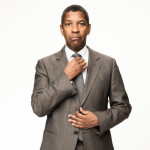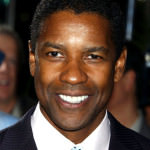Denzel Washington interview
Washington appears as a guest on The Late Show with David Letterman and talks about the possibility of being James Bond.
What happened was someone calls, like a talks radio show – I think I was in London, I was somewhere in Europe. And they said, “Would you want to be the next James Bond?” And I said, “Yeah, sure, why not. In fact, let’s start a campaign.” And you can’t say things like that, they started a campaign.
Kravitz & Washington interview
Kravitz and Washington appear on The Late Show with David Letterman and talk about their boating holiday off the Amalfi Coast, in which Kravitz managed to talk Washington into watching his own films. Kravitz:
I got him to watch all of his movies. We sat on that boat – John Q, Man on Fire, Malcolm X – we watched them all. And what’s great is that you get the commentary.
Washington:
I was good, too. I was like, “Wow, I’m good!”
The Talks interview
 Washington gives an interview to The Talks. He discusses whether he likes playing the bad guy, his spirituality, and turning down roles because they typecast him.
Washington gives an interview to The Talks. He discusses whether he likes playing the bad guy, his spirituality, and turning down roles because they typecast him.
Absolutely. My career is based on saying no. Sidney Poitier told me many, many years ago that the first four or five movies that you do will determine how you’re perceived in the business. So I was very blessed that the second movie I did was with Norman Jewison, the third movie I did was with Sidney Lumet, and the fourth movie I did was Cry Freedom with Richard Attenborough, for which I was nominated for the first time. I was off to the races. There were other movies that I could have done and I didn’t do.
O Magazine interview
Washington speaks to Oprah in an interview for O Magazine about his role in The Great Debaters.
Man, it just moved me. I felt an emotional connection. What I learned while doing research for the film is that many black colleges, like Wiley and Morehouse, opened during the decade following the 1863 Emancipation Proclamation. That’s because education was believed to be the way out, so when millions of black people were finally let go after almost 250 years, boom, we opened schools. And that’s partly why Melvin Tolson’s debate team was able to beat these other national teams in the ’30s: Great thinkers such as W.E.B. Du Bois and Melvin B. Tolson couldn’t teach at schools like Harvard or Columbia. But the film is really about the kids and the journey of one boy in particular.
O Magazine Interview
Washington talks about his reaction when reading the script for the movie The Great Debators:
The reaction you had in the screening room is the one I had. Man, it just moved me. I felt an emotional connection. What I learned while doing research for the film is that many black colleges, like Wiley and Morehouse, opened during the decade following the 1863 Emancipation Proclamation.
